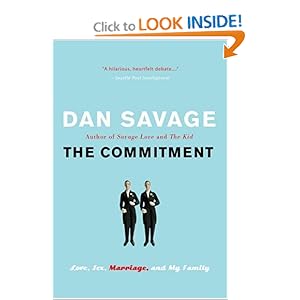So why on earth have I been trying to read the mainstream, pop-econ books I've been reading?
Well, I'm glad you asked! Because I have a few answer for you. First, econ is not the study of money! Second, it has some interesting implications and explanations, and finally, because it freaking matters. Read on, dear readers, for more!
Alright, so maybe I exaggerated a bit - econ does study money. Surprise. But. But more than that it's the study of human behavior. Specifically, it's the study of how people allocate resources in response to incentive. That sounds boring, right? Well consider that "resources" is anything you have - your time, your interest, your activity. And incentive is anything that influences your behavior - a smile, a piece of candy, a PR in a race, that good feeling you get when you donate to NPR. So at its broadest, there isn't that much difference between economics and many other social sciences - psychology, sociology, maybe even anthropology (not sure on that last - I've never studies anthro). But those things are interesting. Why? Well, if you read half the posts on this, or any other, blog they're about why do people do the freaky crap that they do. Why do I do the freaky crap I do? Why do even weirder people do even weirder things? Why do pepole act so goddamn stupid? These are the questions, dear IR's, and econ has answers. Maybe not the rigth answers, definitely not all answers I agree with, but interesting answers. So one reason to read at least pop-econ is that it's interesting.
Now even my brief reading of econ has found that it does explain some things. Here's an example. Why do special interest groups have so much power, and why do we end up with so much "pork" in government spending? Well, it turns out there are very rational (and I think good) explanations for how this occurs and they come right from economics. Unfortunately, I just tried to write them down and it came out in the electronic equivalent of whale vomit, all over the screen, so that'll wait for another post. But for now just take my word for it - it has some good explanations.
So now you know it's interesting, it explains things, why else?
Well, because it matters. I think I've ranted on this before, but here you go again. I have talked before about how taxation is the implementation of a people's (society's) will. And that's why taxation should matter to all of us, whether we like taxes or not, can afford them or not, they represent how we as a people are acting. I still buy that, by the way. But the implication is that the people express their will through the economy (Taxation) which means we express our will through the allocation of resources. And when you think about it, the allocation of resources is probably the single most powerful thing that societies do. Does the king get all the resources? Do all people share equally in the resources? Is it based on merit, inheritance, effort? These are all about economics, and these things all matter. And what economics, in theory, should do is give us a way to study how our decisions about these things actually work. In other words, if we set up a policy to tax this, or incentivize that, to achieve a goal, how well does that policy work? Those are the questions that really matter, the ones that need to be asked. And the ones that economics should help with.
Even in my very brief reading in this area I'm already seeing 1) the reasons some things are being done in the government, 2) where some people (commentators, politicians) seem to be just dead wrong, and 3) some possibilities for how things could be done different. I'm not quite arrogant enough to figure my quick reads have got me wise enough to tell everyone what to do (I was already that wise, doncha know?) but I do feel I've got some new insights.
Everything I've said, by the way, is my endrosement for "Naked Economics" by Wheelan. It's readable, it's basic, it's interesting, and it's more of the core ideas than Freakonomics or the other books I've read. Highly recommended.
So now that you know why this is so damn interesting, you may want to ask "Does all that insight change Shifter's life?" Nah. Not a bit. But that's a whole different question, and a different post, and probably on someone else's blog.
So now that you know why this is so damn interesting, you may want to ask "Does all that insight change Shifter's life?" Nah. Not a bit. But that's a whole different question, and a different post, and probably on someone else's blog.


No comments:
Post a Comment